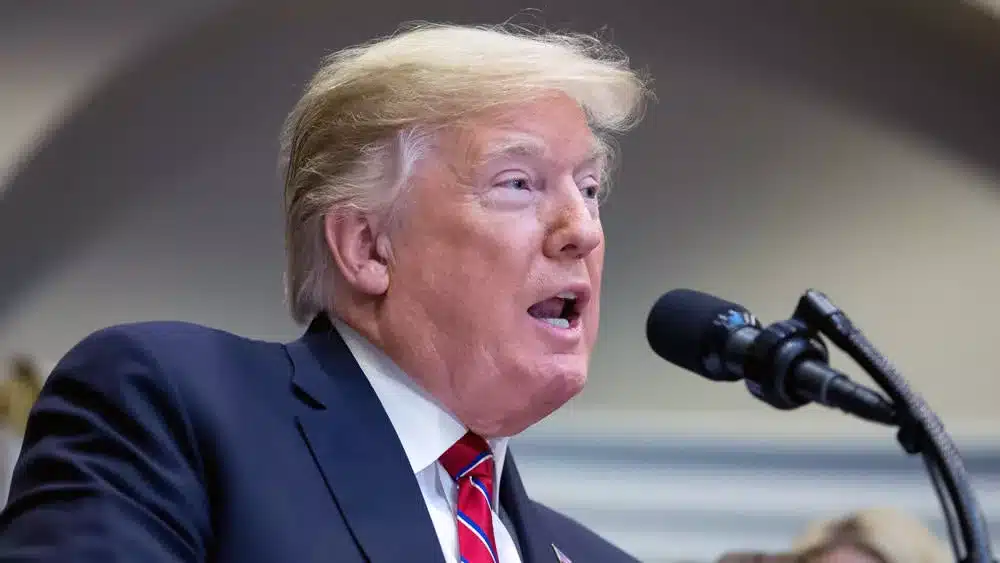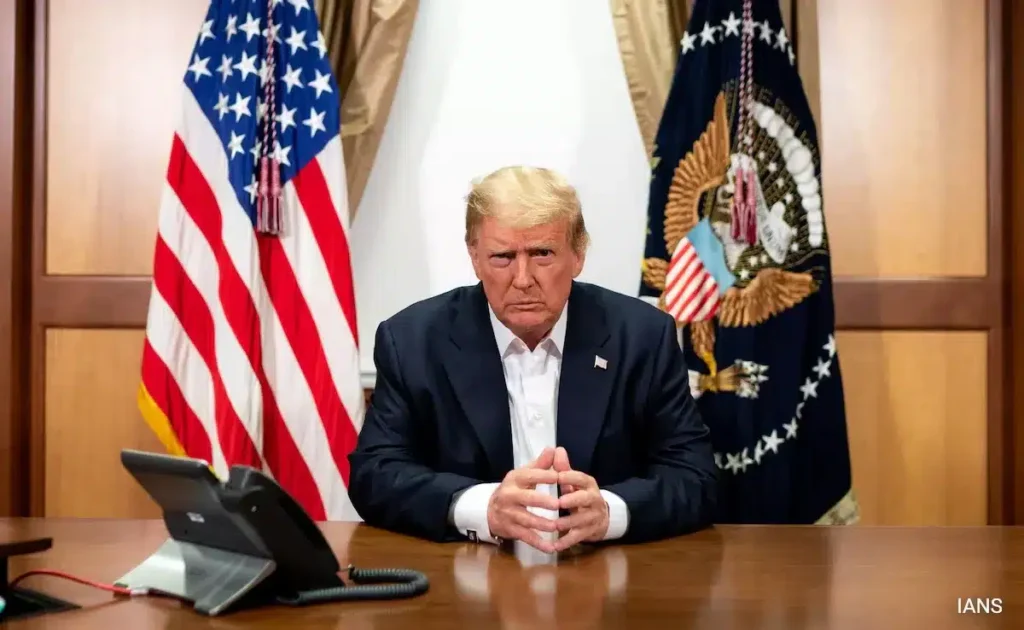
Could Donald Trump Serve Beyond 2029? Exploring Constitutional Loopholes and Political Realities
As President Donald Trump begins his second non-consecutive term, questions about whether he could remain in office beyond 2029 are gaining attention. Under the 22nd Amendment, no individual can be elected to the presidency more than twice, but political maneuvers and extraordinary scenarios have sparked debates over the possibility of extending his tenure.
In this article, we explore what it would take for Trump to serve beyond 2029, from constitutional amendments to unprecedented crises that might challenge established norms.
The 22nd Amendment: A Hard Limit on Presidential Terms
The 22nd Amendment, ratified in 1951, was introduced to prevent a repeat of Franklin D. Roosevelt’s four-term presidency. It explicitly states:
“No person shall be elected to the office of the President more than twice.”
This language leaves little ambiguity and has become a cornerstone of democratic governance in the United States. However, history shows that constitutional provisions can be amended, reinterpreted, or challenged under extraordinary circumstances.
Amending the Constitution: A Challenging Path

One way to allow Trump to serve beyond 2029 would be to repeal or modify the 22nd Amendment. This would require:
1. Approval by Congress: A proposed amendment must pass with a two-thirds majority in both the House and Senate.
2. State Ratification: Three-fourths of state legislatures (38 out of 50) must ratify the amendment.
While Congressman Andy Ogles has introduced a resolution proposing such an amendment, the likelihood of it succeeding in today’s polarized political climate is slim. The process demands overwhelming bipartisan support, which would be difficult to achieve given the divisive nature of Trump’s presidency.
Extraordinary Scenarios That Could Extend Trump’s Tenure

1. National Emergency or Crisis
In times of war, natural disaster, or economic collapse, there could be calls to extend Trump’s presidency for the sake of continuity. While no modern precedent exists, some argue that extraordinary circumstances might justify extraordinary measures.
For instance:
• Congress could delay elections under emergency powers, allowing Trump to remain in office temporarily.
• Public sentiment might shift in favor of keeping an experienced leader in power during a time of instability.
These scenarios, however, would face significant legal challenges and public scrutiny.
2. Vice Presidency and Succession
The Constitution does not explicitly prohibit a two-term president from serving as vice president. In this scenario, Trump could run as a vice-presidential candidate in 2032 and ascend to the presidency if the sitting president were to resign or become incapacitated.
This strategy, though legally murky, would likely provoke constitutional debates and challenges regarding the intent of the 22nd Amendment.
3. Judicial Interpretation of the 22nd Amendment
Some legal scholars argue that the amendment limits a president from being “elected” to a third term but does not explicitly bar them from serving again after an extended gap. A reinterpretation of this provision by the Supreme Court could theoretically pave the way for Trump to pursue another term in the future.
Public Opinion: The Key to Any Extension
For any of these scenarios to succeed, public support would be critical. Trump’s core base remains fiercely loyal, but polling indicates mixed opinions among the broader electorate about extending presidential term limits.
Key factors influencing public sentiment include:
• Perceived Effectiveness: If Trump’s second term is viewed as highly successful, there may be greater public demand for his continued leadership.
• Opposition Mobilization: Democrats and even some Republicans would likely push back strongly against any efforts to challenge term limits.
Global Comparisons: Leaders Who Extended Terms

Several world leaders have successfully extended their time in office by amending their nations’ constitutions or leveraging crises, including:
• Vladimir Putin (Russia): Used constitutional amendments to extend his rule.
• Xi Jinping (China): Abolished presidential term limits entirely.
While the United States’ democratic framework differs significantly, these examples demonstrate how political climates can shift to accommodate extended leadership.
Challenges to Overcome

Even with significant public and political support, extending Trump’s presidency would face formidable obstacles:
1. Constitutional Safeguards: The 22nd Amendment’s language is clear and would require overwhelming bipartisan support to amend.
2. Political Opposition: Efforts to extend Trump’s tenure would likely galvanize opponents, creating intense political polarization.
3. Judicial Oversight: Courts would almost certainly intervene in cases involving reinterpretation or circumvention of constitutional provisions.
What Does This Mean for the Future of Presidential Term Limits?
The discussion around Trump’s potential to serve beyond 2029 raises broader questions about presidential term limits in the U.S.:
• Are two-term limits still relevant in a rapidly changing world?
• Could longer terms provide stability, or would they undermine democratic principles?
While the 22nd Amendment remains a bedrock of American democracy, political and societal shifts could challenge its relevance in the coming decades.
Conclusion: A Complex and Unlikely Prospect

Donald Trump serving beyond 2029 would require a dramatic shift in legal, political, and societal norms. From constitutional amendments to unprecedented crises, the pathways are fraught with challenges.
For now, the 22nd Amendment remains a formidable barrier, reflecting the United States’ commitment to preventing the concentration of power. However, as history has shown, political landscapes can shift unexpectedly, and the debate around term limits is unlikely to disappear anytime soon.
What do you think about presidential term limits? Should they ever be reconsidered? Share your thoughts below.
Source:https://themusicessentials.com/trending-pop-culture-news/how-donald-trump-could-stay-president-beyond-2029-legally-or-not/

